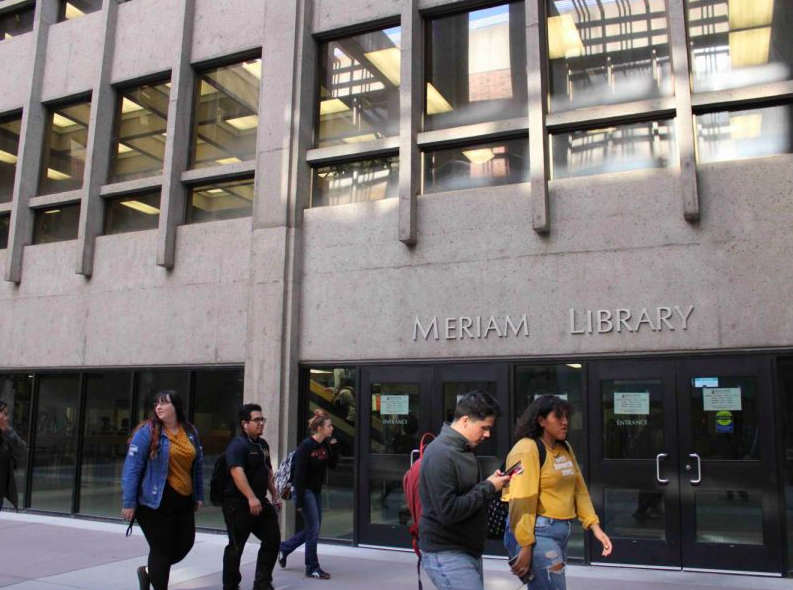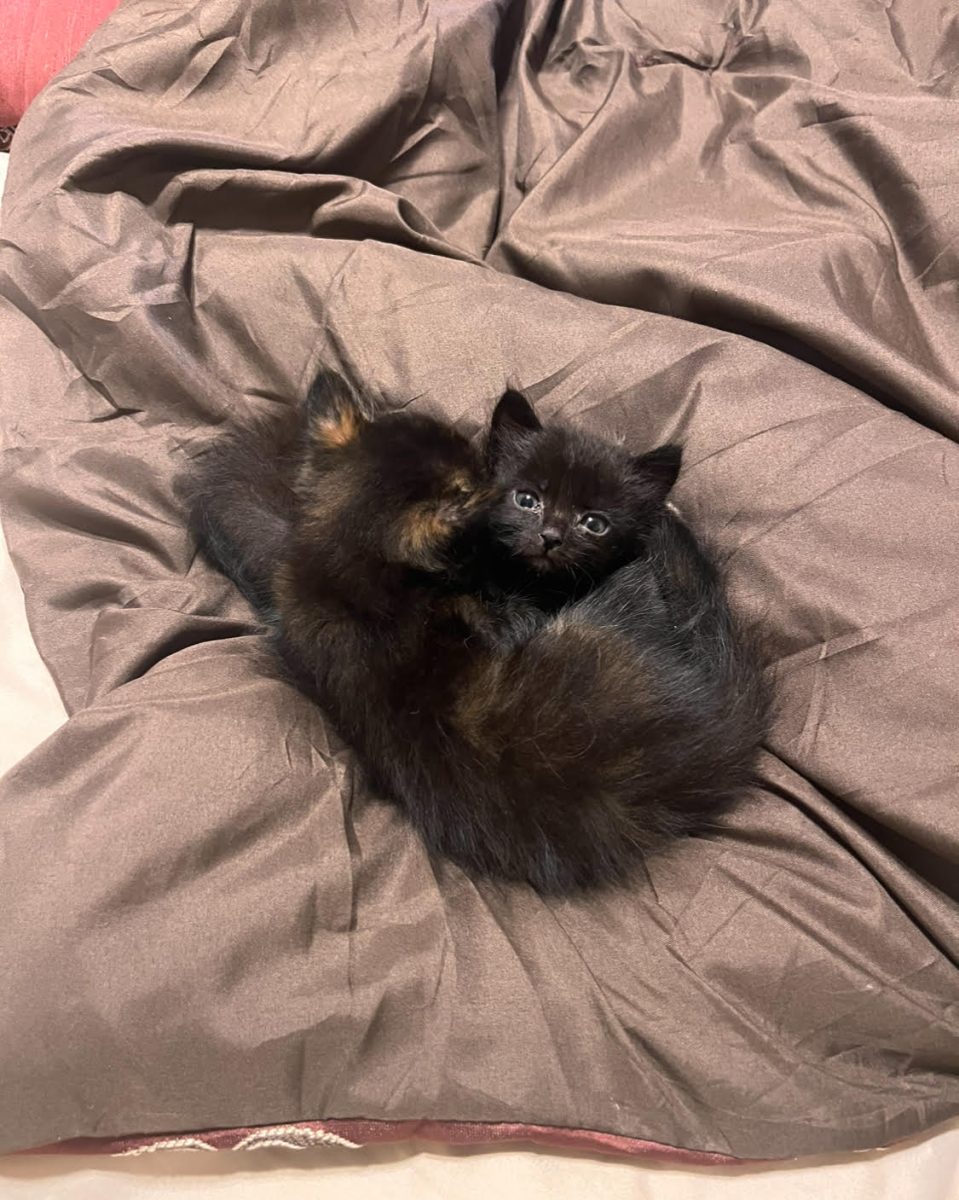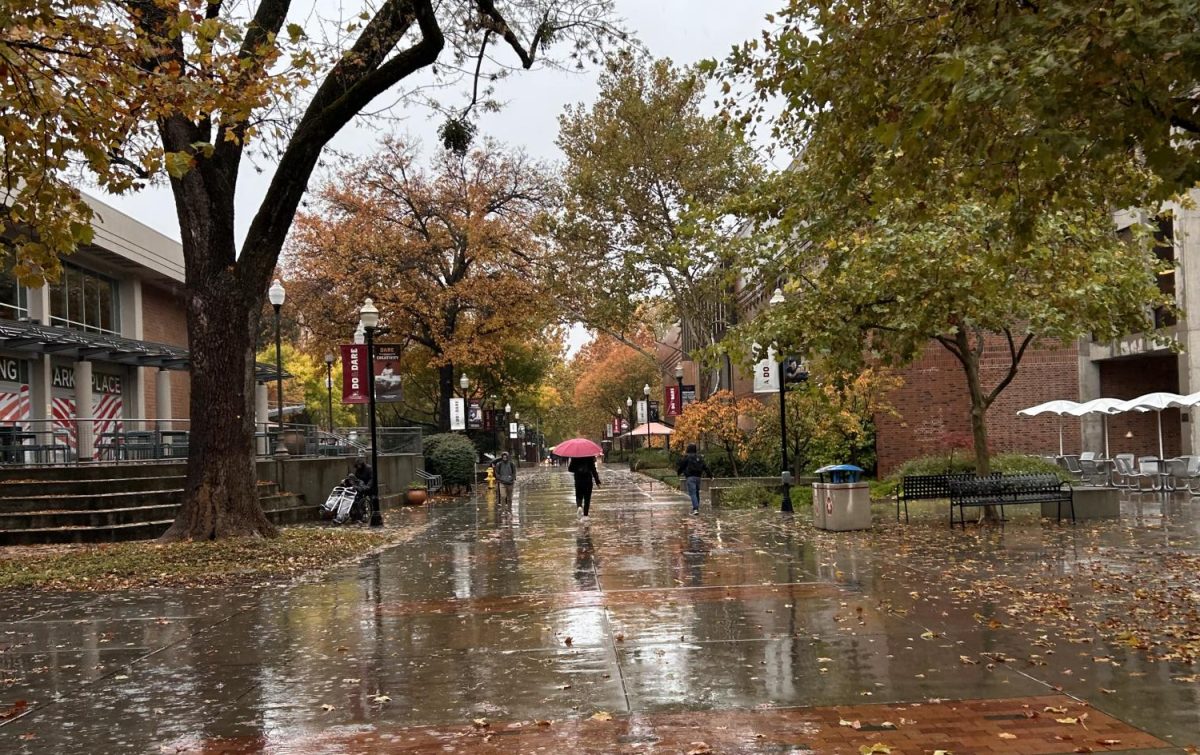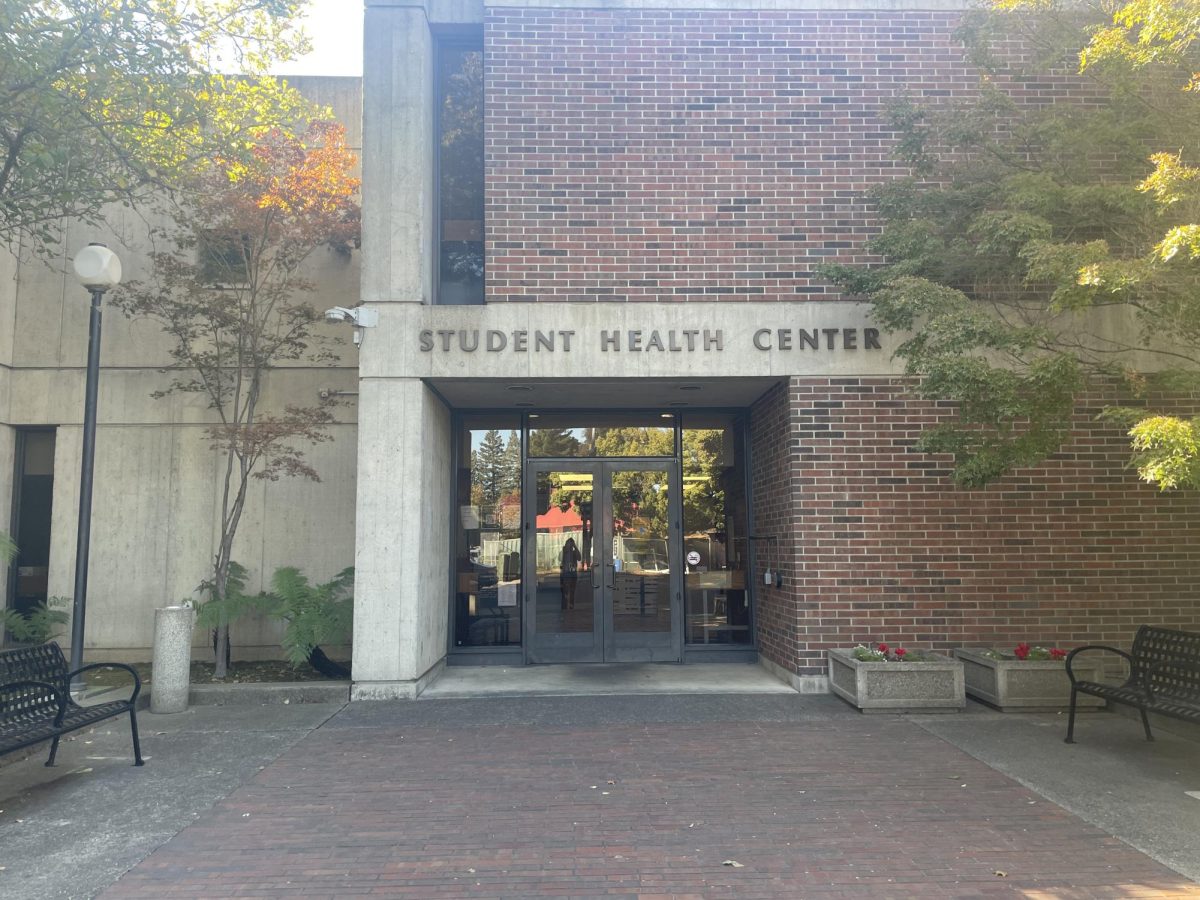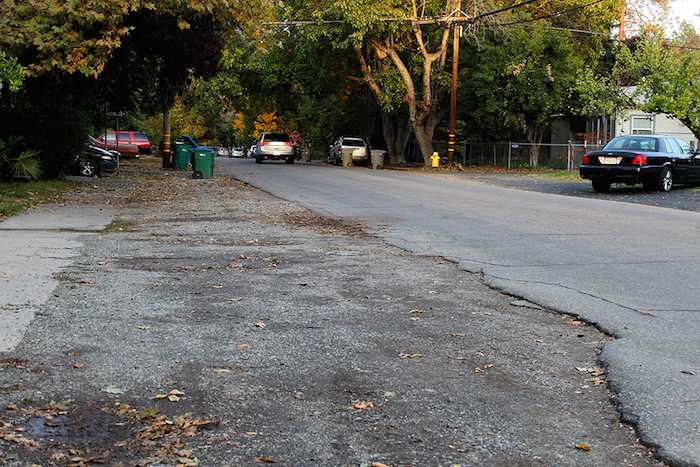
A concern addressed by students at the most recent open forum was the need to feel safe in Chico.
“This is where we live. If we don’t feel safe leaving our homes, how are we supposed to feel safe coming to campus?” said Griselda Avila, senior sociology and multicultural and gender studies major. “Because so many students live within the 2-mile radius of campus, more should be done to address the lack of action going on.”
Avila spoke out at the open forum held on Nov. 10 to discuss what qualities the hiring committee should look for in the future president of Chico State. Avila said she spoke at the forum because administration has the power to foster change.
“I wanted to go to the presidential forum because I felt like our potential new president would be able to do a lot more than I can and if there’s any way I can be involved, then I’m going to try and do it,” she said.
Another student that spoke out against violence at the forum was Tyrell “Rex” Bell, junior communication studies major. He said that Chico can sometimes be a hostile environment for students. Bell has experienced verbal attacks while walking around town.
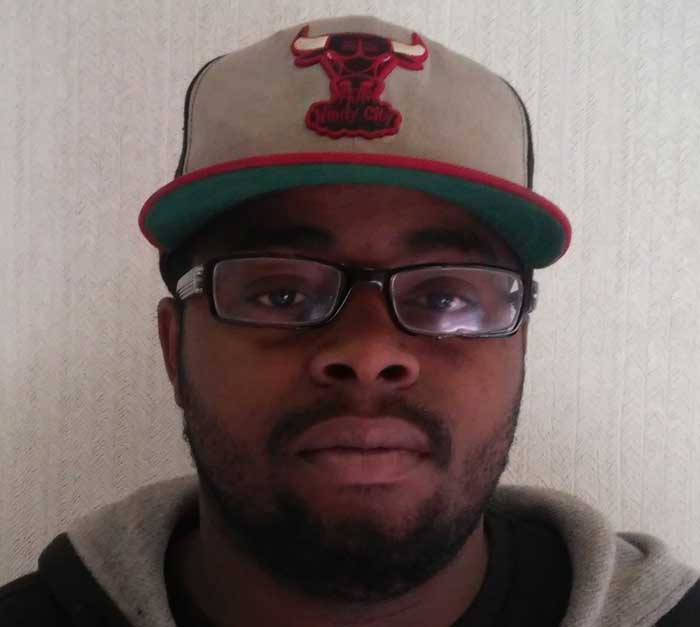
“I’ve kind of had the whole coon-calling thing happen to me a bunch of times here in Chico,” he said. “People will drive by, call me a nigger and tell me to go home, occasionally throw something at friends of mine or myself.”
Bell said he is uneasy about dealing with racism in Chico and it upsets him to have to worry about violent acts happening to others he cares about. He hasn’t experienced as much physical violence in Chico as some of his friends.
“A lot of my friends have gotten jumped and robbed,” he said. “It boils my blood. It hurts me that my friends end up having to go through those things.”
Bell believes safety should be a priority for administration. Students who attend Chico State are exploring their identities and growing as individuals, but it can be hard to focus on growth when some students constantly feel threatened, he said.
Bell has seen violence affect student success at Chico. Some of his friends have dropped out of Chico State because they lacked support when face with violence.
“Being a person of color from a lower socio-economic background, the adjustment is hard,” he said. “If a culture doesn’t seem safe or productive and it’s more destructive, a lot of people just leave and decide to go home.”
Students who are victims skip class to avoid discussing their situations, he said. Crimes also affect his friends that are international students. They’ve been victims of crime and since they are visiting from another country, the experience can be even more jarring.
“International students see America on television and it’s hyper-violent,” he said. “They look at it and think, ‘maybe it’s not like that,’ but they get here and their biases are confirmed through experiences.”
Tray Robinson, director of the Office of Diversity and Inclusion, recognizes that violent crimes happen to members of the Chico State community. Violent acts can happen to any population of student, he said. It’s important for the community to educate each other on violence in Chico.
“We need to police ourselves,” he said. “I feel it’s a community-wide issue and we all need to be part of the solution.”
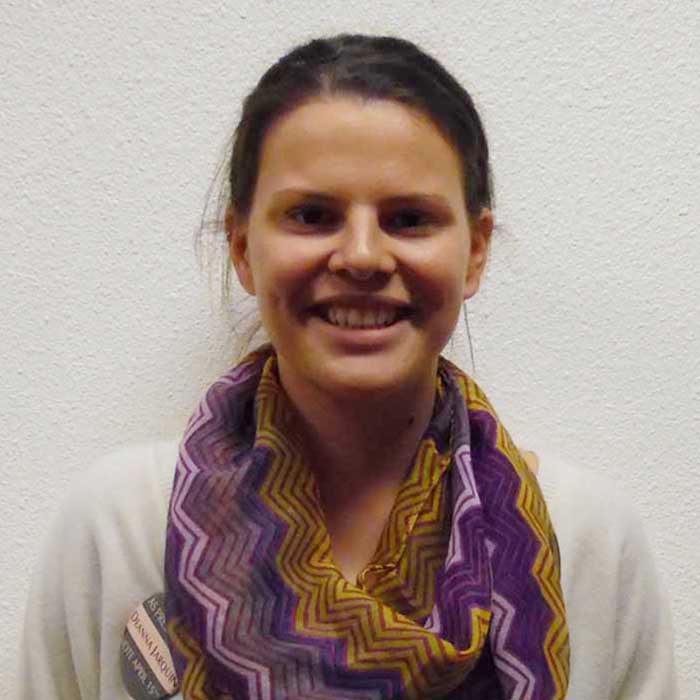
Associated Students hosted a Safety Summit on Nov. 4 to discuss various issues regarding safety in Chico. Deanna Jarquin, Associated Students president, said comprehensive solutions for safety were suggested by multiple groups at the summit. Some recurring suggestions included:
- Launching collaborative and research-based bystander programs and workshops
- Assessing and improving nighttime modes of transportation
- Increasing the number of streetlights
- Focusing on community policing efforts
- Placing safety cameras on the bike path
The bike path located near Chico State is heavily used by students and John Feeney, University Police chief, said the city is looking to create a safer environment on the bike path.
“The city is looking at increasing lights and the placement of crime cameras upon the bike path,” he said. “The University Police Department specifically supports that effort to help encourage student safety because even though 90 percent of the bike path belongs to the city of Chico, 90 percent of the users are students of the university.”
University Police has shared jurisdiction with the Chico Police Department within a mile radius of campus. This radius extends to Eighth Avenue.
Within the 1-mile radius, University police can provide city police with additional support. Chico police typically have five to seven officers and a patrol supervisor patrolling the entire city, according to Sergeant Scott Zuschin of the Chico Police Department.
“On a good day, we are barely treading water regarding calls for service,” he said.
Chico police can receive upward of 400 calls in a 24-hour period, Zuschin said. If several high-priority calls occur at once, outside agencies, such as California Highway Patrol and the Butte County Sheriff’s office, are called upon.
Safety is a partnership among police, the city and the community, Feeney said. It is also important for University Police to discuss personal safety with students.
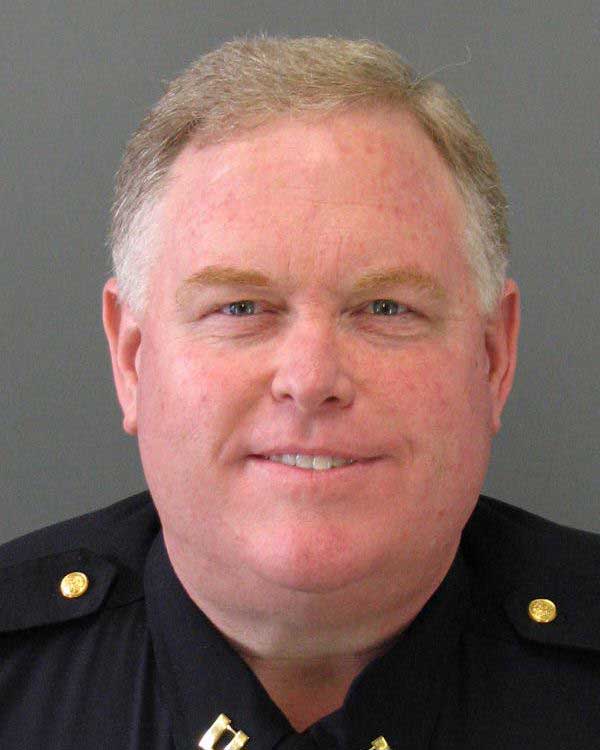
While community policing efforts are important for student safety, Jarquin said providing students with more weekend resources on campus can help create a safer environment. Another solution proposed at the Safety Summit was to keep certain on-campus buildings open later.
On Nov. 13, the Cross Cultural Leadership Center held a Late-Night Lounge event at Selvester’s Café-by-the-Creek to provide a safe space for students.
“It’s an alternative way for students to spend a safer Friday night,” said Maikhou Thao, sophomore sociology major and CCLC intern. Thao was one of three students to plan and coordinate the event.
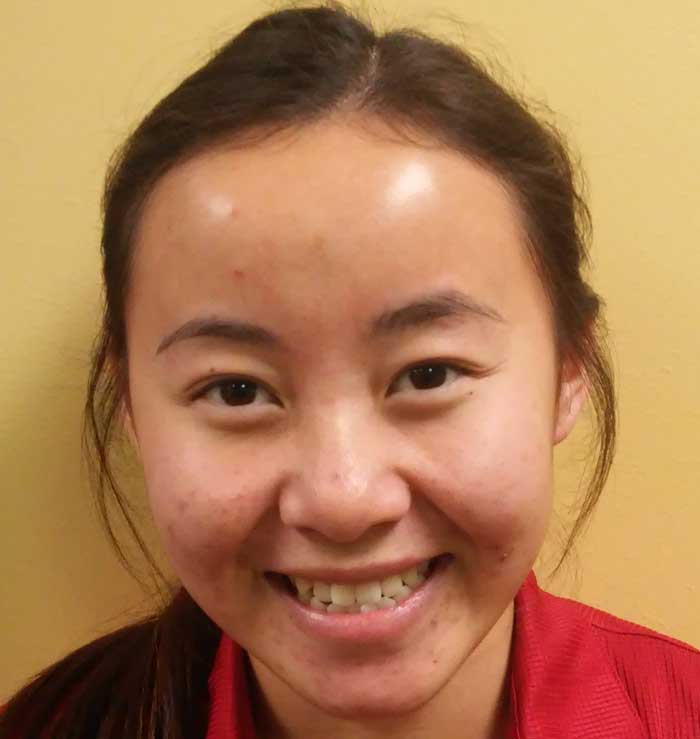
Bell said it’s important for the campus to provide alternative events on campus so students aren’t put into potentially dangerous situations in Chico.
While organizations on and off campus continue to support efforts against crime and violence in Chico, Jarquin hopes students continue to voice their concerns.
“I talk a lot about safety and community and diversity,” she said. “I think it’s important that students unapologetically ask what we’re doing to cultivate a safer campus.”
Elizabeth Castillo can be reached at [email protected] or @ElizabethC718 on Twitter.




